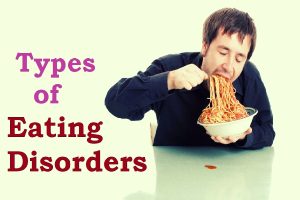There are a variety of treatment options for eating disorders for you to choose from. But what is the most effective option for you? This article will focus on eating disorders treatment and examining the various ways to overcome the issue.
Eating Disorders and how they’re treated
There are numerous kinds of eating disorders and each one is dealt with differently. The most frequent eating disorders are anorexia , nervosa and bulimia nervosa.
Anorexia is a condition in which a person isn’t eating enough or may be unable to control their appetite. This could result in severe weight loss, as well as other health issues. The disorder known as bulimia nervosa occurs which causes a person to eat a lot of food, then purges it through vomiting or taking laxatives. It may also cause extreme weight loss, as well as other health problems.
Both of these conditions are treated through therapy and, sometimes, medications. The kind of therapy used depends on the degree of the condition. For less severe cases, cognitive behavior therapy is a possibility. This type of therapy aids people change their mindset and behaviour about food. In more serious instances, hospitalization is required so that the patient can be closely monitored and receive the nutrition they require.
Sometimes, medication is also employed for treating eating disorders. Antidepressants are often prescribed to alleviate the symptoms of eating disorders. If someone suffers from anorexia and is underweight, they might receive medication to aid in weight gain.
There are many indicators of an eating disorder and they can vary based on the individual and particular condition. But, there are a few obvious signs the presence of an eating disorder. Some of these include:
Avoiding certain foods
Small portions of food, or only certain kinds of food
Purging or exercising excessively after eating
-Preoccupation with food, weight or the appearance
Extreme mood swings, or extreme shifts in behavior
If you’re concerned that someone you know might be suffering from the effects of an eating disorder it’s essential to talk with the person concerned about their concerns and urge them to seek out professional assistance.
The various types of treatments
There are a variety of treatments for eating disorders. It is difficult to decide which one is best for you. It is essential to seek out professional assistance from a licensed counselor or treatment center. Here are a few of the most popular kinds of treatments:
CBT: Cognitive behavioral therapy (CBT) CBT is a kind of psychotherapy that assists individuals change their negative thought patterns and behavior. CBT is one of the most effective treatment options for eating disorders.
Interpersonal Therapy (IPT): IPT is a form of psychotherapy focused on interpersonal relationships and communication skills. It is helpful in treating eating disorders through increasing communication and coping abilities.
Therapy that is based on family (FBT) FBT is a kind of therapy that involves the whole family as part of the treatment. It is typically used with adolescents suffering from eating disorders as it may help enhance family communication and provide support.
Nutritional counseling Dietitians who are registered or nutritionist can offer nutritional counseling to help those who suffer from eating disorders make better eating choices and establish better eating practices.
View this post on Instagram
Certain instances medications may be prescribed to combat an underlying problem such as depression or anxiety which may contribute in having an eating disorder.
What can we do to prevent eating Disorders?
There are a variety of ways to help prevent eating disorders but it’s important to keep in mind that anyone can be affected by an eating disorder, whatever “prepared” they are. Here are a few things to help prevent the development of eating disorders:
Check out treatment programs for Alsana St. Louis Inform yourself and your family members on the dangers of diets and the importance of body acceptance.
Challenge the images you see in the media regarding what an “perfect” body looks like.
Encourage healthy eating habits for yourself and your loved ones without placing too excessive stress on losing weight or weight loss or dieting.
Talk openly about any worries you have about your appearance or eating habits.
Seek professional assistance If anyone you are familiar with shows indications that they are suffering from the onset of an eating disorder.
The importance of Family and Friends
There is no one answer to what are the most effective options for treatment of eating disorders. One important aspect to take into consideration is the role family members and friends contribute to the process of recovery.
For many people suffering from eating disorders, families and acquaintances can be a crucial source of help. They can offer practical assistance for example, helping with cooking meals or providing child care, as well as emotional help. They can also provide the needed inspiration and motivation.
In certain instances relatives or friends might be required to participate when it comes to more official aspects of therapy, for example,Alsana St louis taking care of transportation to appointments, or even attending sessions with therapists. If someone is suffering from severe disordered eating, it could even be essential that loved ones provide 24/7 care.
Although the degree of involvement can differ between individuals however, it is obvious that friends and family members can play a crucial role in the treatment of eating disorders and recovery.